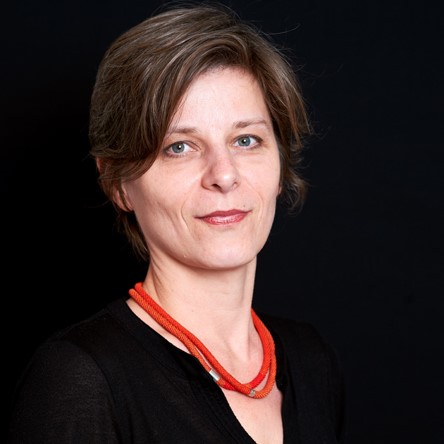11th event of the Vienna Evaluation Network took place on Thursday, October 3, 2019, 4-5.30 pm.
Topic: Evaluation culture: What is needed? What is possible?
by guest speakers Katharina Warta & Klaus Schuch (fteval)
View or download the slides (PDF):
The Austrian Platform for Research and Technology Policy evaluation (fteval) has been founded in 1996 assembling evaluation clients (policy makers, agencies, research organisations) and evaluators (public research organisations, private non profit organisations and for profit consultancies), in the domain of research, technology and innovation policy. The mission of fteval is “to promote the quality, the transparency and adequate coverage of evaluations to improve strategic planning of research, technology and innovation (RTI) policy in Austria. The existing evaluation culture is evolving continuously, in consultation with decision makers in Austrian RTI policy.” The event with VEN is an opportunity to inform about fteval, by providing a set of facts on activities, members, publications etc., with a special focus on one of its products, namely the common standards of evaluation published in a third edition in 2019. Another focus will lie on enabling aspects of such a platform, which partly might be particular to the sector of RTI-policy.
Finally, a discussion on the question what this means for evaluation practice on the one hand and for policy makers on the other will be opened.
 Dr. Klaus Schuch is expert on techno-globalisation, international R&I cooperation, R&I policies, and evaluation. Klaus is director and senior scientist at ZSI (Centre for Social Innovation), Austria.
Dr. Klaus Schuch is expert on techno-globalisation, international R&I cooperation, R&I policies, and evaluation. Klaus is director and senior scientist at ZSI (Centre for Social Innovation), Austria.
Since May 2012, Klaus is also managing director of the Austrian Platform for Research and Technology Policy Evaluation.
Klaus is and was engaged in a large number of national and international projects. From 2009 to 2012 he analysed the Austrian R&I policy and its implementation under ERAWATCH and since 2015 he is national correspondent for the EC’s R&I Observatory. In 2007 he was scientific expert of the CREST Working Group on internationalisation in S&T and in 2012 member of the external expert group of the European Commission to advice on the European R&I-internationalisation strategy. In 2016/2017 he was delegated to the ERAC Working Group on Impact Measurement. He is also Austrian delegate to the European RTD Evaluation Network and was member of the COST Scientific Committee (2016-2019).
2006-2014 Klaus lectured ‘monitoring and evaluation’ and – from 2014 to 2016 – ‘techno-globalisation’ at the Department of Development Studies at the University of Vienna. He also taught at the Vienna University of Economics and Business, the Danube University Krems, the University of Applied Sciences Vienna and at the University Linz (topics: evaluation; regional technology policy; methods of empirical social research). He is lecturer in several international summer schools and taught evaluation in the post-graduate SOQUA-course addressing young social scientists.
 Katharina Warta is managing partner at Technopolis Austria, and chairman of the Austrian Platform Research & Technology Policy Evaluation. She joined Technopolis in 1999, working for six years in the Paris office before moving to Vienna in 2004. She has more than 20 years of experience in leading evaluations in the domain of research and innovation policy. Katharina Warta holds a Master in economics (Vienna University, 1994) and is Trainer in group dynamics at the Austrian Association for Group Psychotherapy and Group Dynamics (ÖAGG, 2016).
Katharina Warta is managing partner at Technopolis Austria, and chairman of the Austrian Platform Research & Technology Policy Evaluation. She joined Technopolis in 1999, working for six years in the Paris office before moving to Vienna in 2004. She has more than 20 years of experience in leading evaluations in the domain of research and innovation policy. Katharina Warta holds a Master in economics (Vienna University, 1994) and is Trainer in group dynamics at the Austrian Association for Group Psychotherapy and Group Dynamics (ÖAGG, 2016).
Since completing her studies, she has focused on public management and regulation theory, chosen notably during her stay at the Ecole Supérieure de Commerce de Paris (ESPC). She was a trainee at the European Commission and fellow of the Robert Bosch Foundation’s program for international affairs. Between 1996-1999, she worked at the Technology Policy department of ARC Seibersdorf Research GmbH (now named AIT-Austrian Institute of Technology), Austria’s largest publicly funded technology institute.
Her work covers evaluations of policies, programs and institutions in the domain of research and innovation, as well as strategy development on the political and the institutional level. She has experience in leading research and evaluation projects, in which she combines quantitative analysis with a qualitative approach. This includes the most recent evaluation of three research centres in Luxembourg, or of the Austrian Frontrunner program, or the evaluation of the Innovation strategy of the City of Vienna (2019), as well as several major programs of the Alexander von Humboldt foundation in Germany, and various research and innovation programs addressing the cooperation between industry and academia. Her studies address key challenges of research policy as for instance how to support radical innovations or increase gender equality. Katharina is fluent in German, French and English.
VEN events generally start with a presentation by the guest speaker. Thereafter, the participants have time to ask questions, discuss the topic, and exchange experiences, followed by informal networking and conversations.
WHEN: October 3, 2019, 4-5.30 pm
WHERE: The venue is Berggasse 17, the third-floor conference room of the European Centre for Social Welfare Policy and Research. Please cross the courtyard to find the entrance left in front of you.
